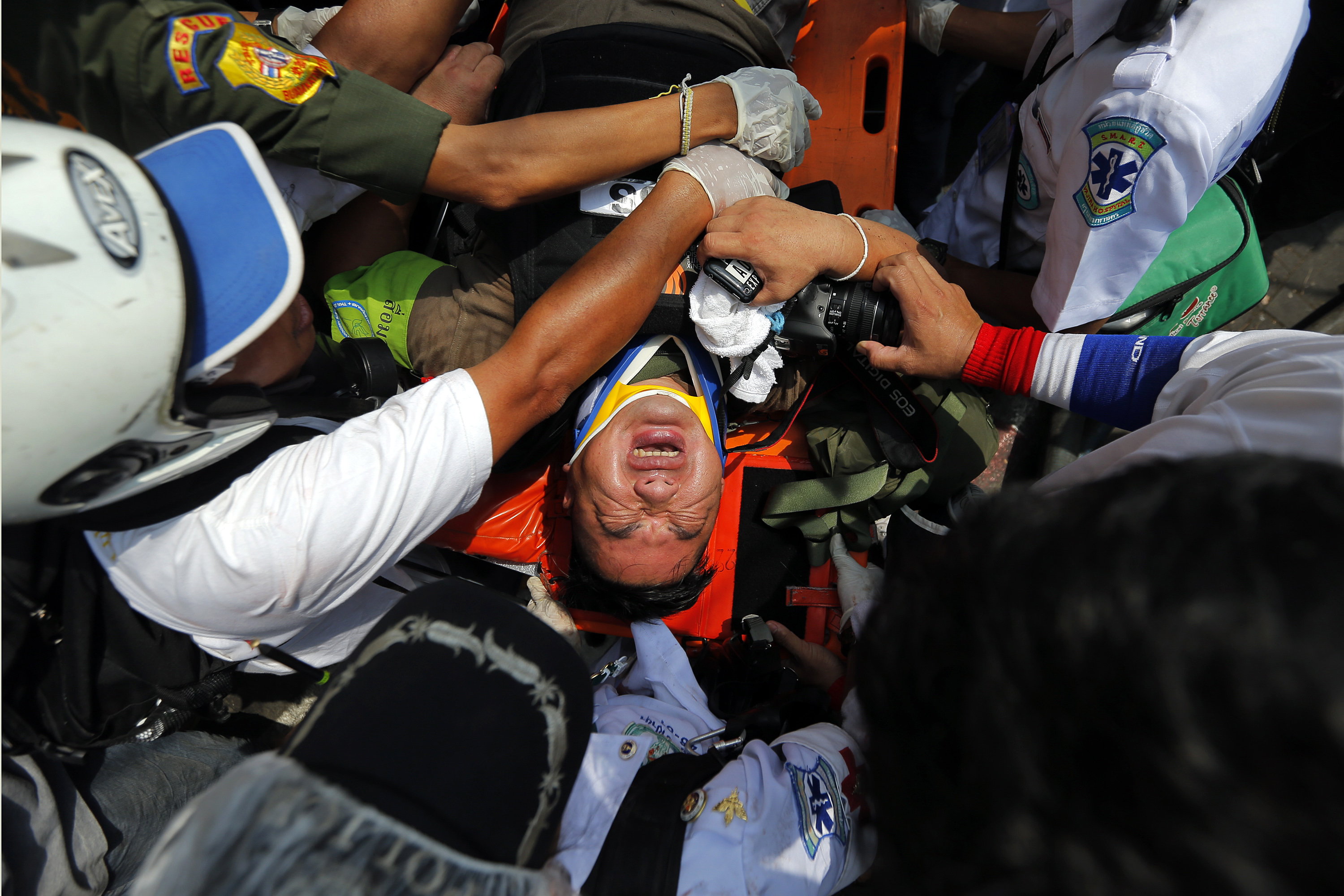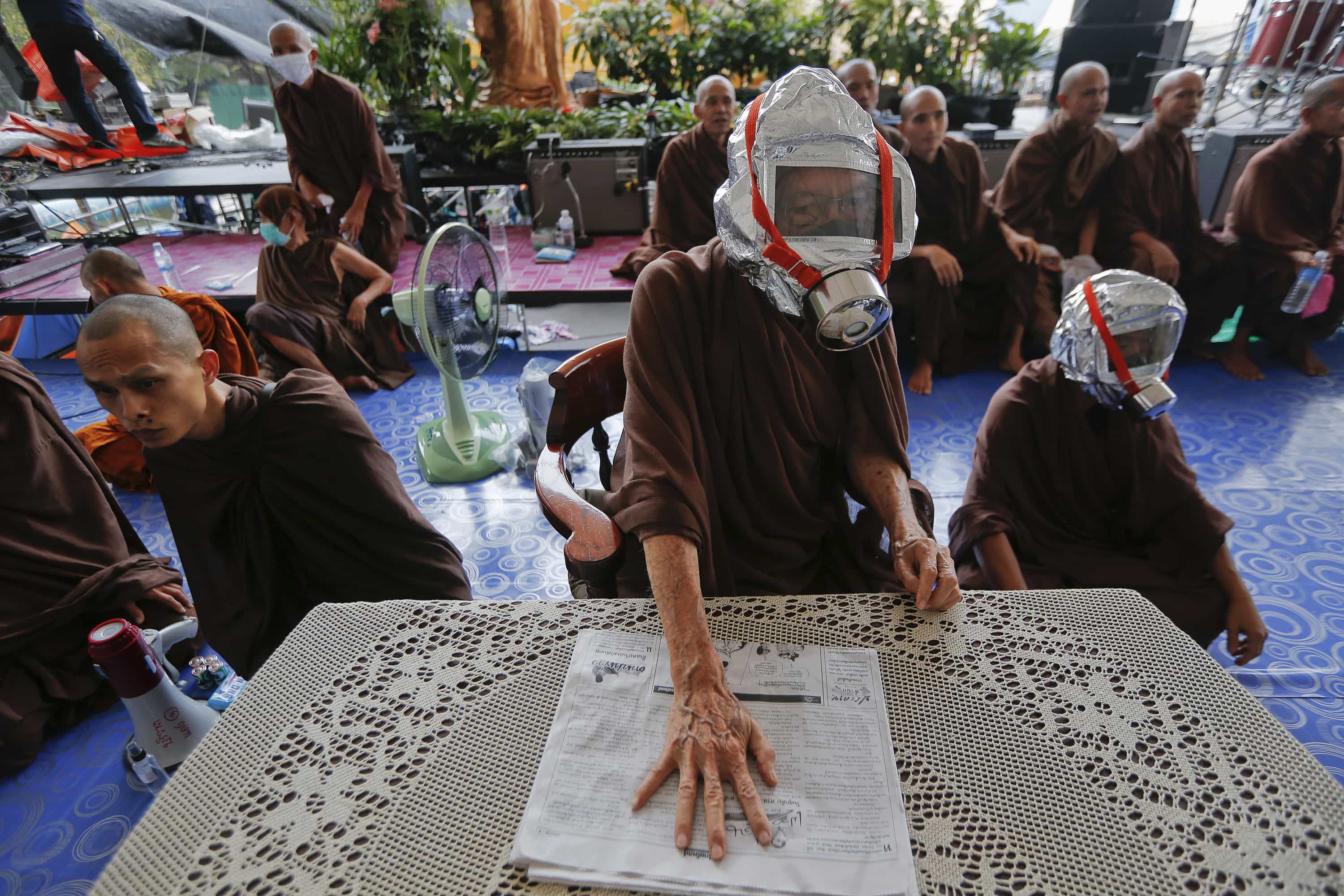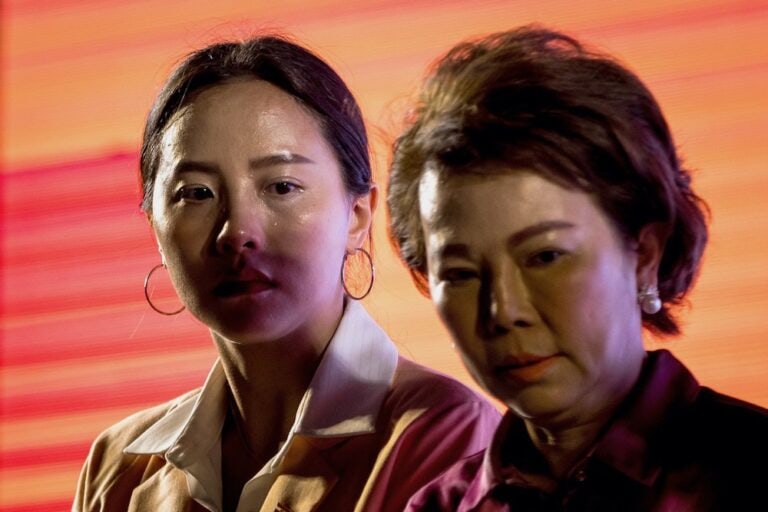The IFJ has reaffirmed its stance on the need for security of journalists working in Thailand to be assured after five journalists were injured in two separate incidents as protesters clashed with police.
On 19 February 2014, the International Federation of Journalists (IFJ) reaffirmed its stance on the need for security of journalists working in Thailand to be assured after five journalists were injured in two separate incidents.
Clashes in Bangkok between protesters and police on Tuesday, February 18, at Phan Fah Bridge resulted in the hospitalisation of Jordi Calvet, a Spanish journalist working for Agencia EFE. Calvert suffered shrapnel-related injuries.
Four journalists were also reportedly injured by a bomb blast in Narathiwat’s Yi Ngor district in Southern Thailand on the night of February 17 as they were inspecting and reporting the scene of another explosion from earlier that day. The Nation reported that two of its reporters, Santhiti Khorjitmet and Patidta Noosanthad, sustained injuries in the blast, as well as Siam Rath newspaper report assistant Muranee and Thai PBS reporter Salika Wongwai.
“These incidents clearly show the ongoing danger faced by reporters covering the political struggles in Thailand and this danger is sadly compounded by the inability for journalists in Thailand to obtain reasonable body armour due to legislation that outlaws citizens or foreigners owning or importing body armour,” the IFJ said.
In January the IFJ wrote a letter to the Prime Minister of Thailand, Yingluck Shinawatra, expressing its fears for the safety of journalists covering political and protest developments in Thailand and called on Thai authorities to introduce a fast-track system so that journalists could legally equip themselves with body armour for protection while reporting on events.
The IFJ has been informed of two senior journalists covering the Bangkok protests who have body armour awaiting clearance in Thai customs.
“The IFJ again calls on that the Thai government fast-track these items through customs so media workers can safely report on the situation in Bangkok and broader Thailand. We also calls on journalists to be aware of the dangerous situation and to ensure they plan ahead before setting out to report on conflict.”
The IFJ’s safety guidelines provide practical advice and information for journalists covering protests and rallies.

An injured reporter is taken to an ambulance during clashes between the police and anti-government protesters near the Government House in Bangkok, 18 February 2014REUTERS/Damir Sagolj



